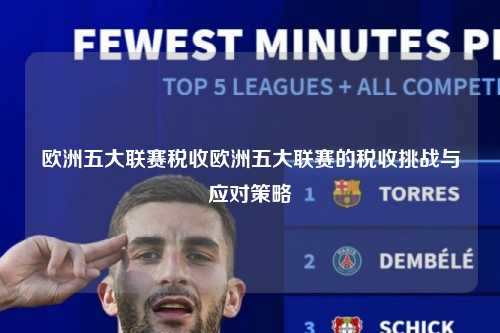
Overview of Taxation Status
Focus on Tax Disputes
The European top leagues (La Liga, Premier League, Serie A, Bundesliga, Ligue 1) not only serve as the pinnacle stage for football but also constitute significant sources of revenue for their respective nations. In the league's background lie complex tax issues that have become increasingly prominent in the globalized and digital age.
In this context, balancing fairness, sustainability, and international cooperation has become an urgent challenge. These issues involve:
Cross-border Transfer Fees: The hefty taxes levied when players move from one country to another complicates club finances.
Commercial Activities Tax: How to ensure fair and reasonable taxation of income generated through commercial activities such as advertising and TV rights across multiple jurisdictions remains challenging.
International Tax Agreements: Uncertainty in applying international tax agreements due to varying interpretations is common. This adds complexity to enforcement.
New Challenges Arising from Digitalization: With the increasing use of remote work, how to accurately determine where employees are physically located impacts tax liabilities.
Discussion on Possible Solutions
Various strategies are being proposed to address these challenges:
1、Enhanced International Cooperation: Establishing closer international partnerships to harmonize tax standards and regulations can reduce inconsistencies and enhance efficiency.
2、Simplified Reporting Processes: Developing more transparent and straightforward tax reporting mechanisms helps businesses comply with tax laws more easily.
3、Utilizing Technological Tools: Leveraging blockchain technology and AI to achieve real-time data sharing and intelligent matching, thereby improving tax accuracy and convenience.
4、Promoting Global Consensus: Encouraging countries to reach consensus on international tax matters and promote the drafting of comprehensive agreements to create a more equitable and sustainable taxation environment.
5、Strengthening Education and Training: Increasing awareness among enterprises and individuals about tax knowledge through training programs to minimize errors and tax violations.
Conclusion
Addressing the tax-related issues behind European league competition is essential for maintaining a fair and competitive ecosystem. By enhancing international collaboration, simplifying reporting processes, utilizing advanced technologies, promoting global consensus, and strengthening public education, it is possible to alleviate the existing tax challenges, fostering long-term sustainability for clubs and associations.

